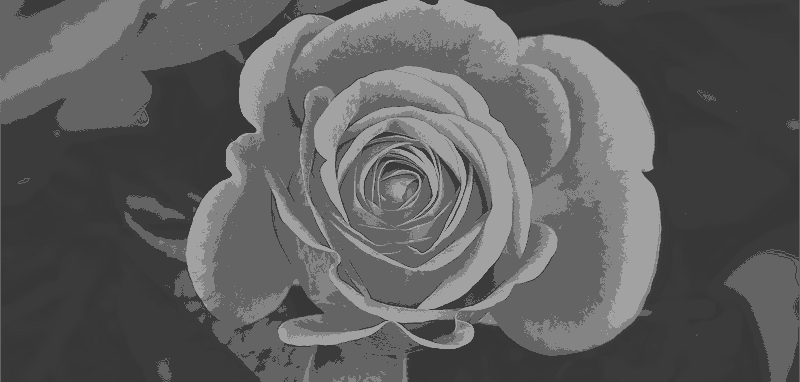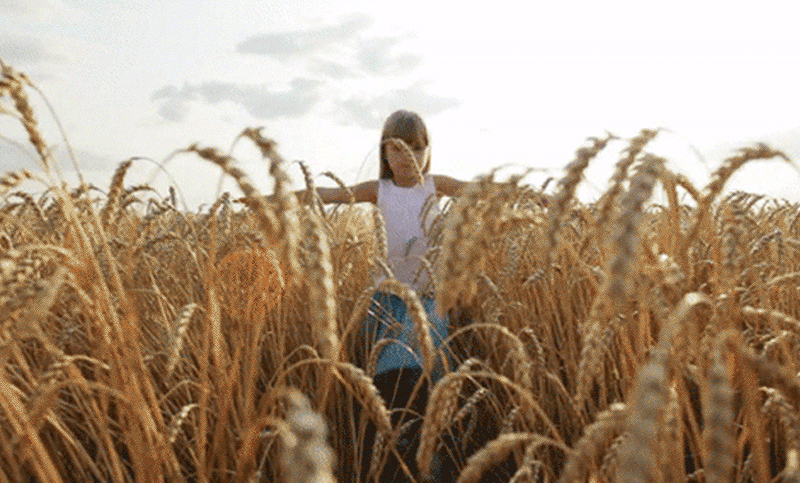In pursuit of the noble aim of feeding the global population, intensive farming has taken a dramatic toll on the health of the planet. Thankfully, there are alternatives to Big Agriculture, and more and more people are discovering the benefits of one particular kind of organic farming that puts people, planet and profit on level pegging: biodynamics. Whilst eulogising on the merits of the biodynamic system of growing, it occurred to us what a good model it could make for a new kind of PR – a less-cynical, more empathetic kind of PR that uses stories to connect and empower, a kind of PR that grows conversations not clicks – PR with purpose.
What is biodynamics?
Holistic, ecological and ethical, biodynamics recognises the spirit in nature and views the farm or garden as a whole in itself, a living organism. It grew from research by Rudolf Steiner in the 1920s and has spread around the world, being practised anywhere food is grown with thoughtful adaptation to scale, landscape, climate and culture.
A manifesto for biodynamics
Like all organic farming standards, becoming certified biodynamic means following strict rules that are difficult to apply in most small gardens. But certified farmers and window-box gardeners alike follow some basic principles:
That a biodynamic farm is a living organism, which
cultivates biodiversity
bring plants and animals together
employs on-farm fertility, enriched with biodynamic preparations
cultivates awareness and creates conscious conversations
supports the integrity of seeds and breeds
works in rhythm with earth and cosmos
takes an holistic approach to pests
offers regenerative solutions for the future, and
contributes to social and economic health.
You might not have come across it before, and depending on where you live will depend on how easy it is for you to access the fruits of biodynamic farming. If you’re already building a mental picture of lentil-burger munching, becardiganed, circus-skilled hippies then I would encourage you to think again. Some of the world’s best vineyards have adopted biodynamic principles, often based purely on sound economics and the pursuit of perfect plonk.
(Bio)diversity
Biodynamics is inspired by the diversity of nature and the uniqueness of complex ecosystems. Biodynamic farmers are encouraged to set aside part of their growing space for wild plants and pollinators, hedgerows and wildlife habitats. For the PR practitioner, the same rule of thumb should apply.
Too often we find ourselves in a monoculture of thought; surrounded by people who look and sound like us, we end up in an echo chamber of stale ideas. By cultivating diversity of thought in our daily work life, creativity can thrive. But just like the biodynamic farmer, we have to make space for diversity; whether we change up our routine, or set aside time in our week to work on projects we wouldn’t usually work on, we can enliven our practice with variety.
Cross-pollination between spaces, people and sectors makes for better ideas. As Mark Twain wrote:
There is no such thing as a new idea. It is impossible. We simply take a lot of old ideas and put them into a sort of mental kaleidoscope. We give them a turn and they make new and curious combinations. We keep on turning and making new combinations indefinitely; but they are the same old pieces of colored glass that have been in use through all the ages.
Increasing the diversity in your environment – both physical and mental – gives you more chances of happening upon that new juxtaposition. A new way of telling the story which feels original, and which you’re excited to share.
Collaboration is king
Bringing animals and plants together sounds like an obvious commandment for farmers, but many industrial farms are highly specialised in only crops or raising one particular livestock. Whilst this brings some efficiencies and there is certainly a time and a place for specialisms, this approach creates imbalances either by depriving the soil in the case of crop intensive farming, or excessive pollution in the case of intensive livestock raising. Natural ecosystems include both plants and animals, each filling complementary roles to protect the delicate balance that most modern farming models break. The key lesson for PR from this principle is collaboration.
"The best results arise when PR and content marketing work side-by-side, and both closely with the client."
When PR is embedded into a wider ecosystem, it becomes stronger. The best results arise when PR and content marketing work side-by-side, and both closely with the client. Getting to know the bigger picture; the ins and outs of a client’s business is crucial for success in PR, just like the biodynamic farmer who needs to view their farm as part of the wider landscape.
Biodynamic growing needs plenty of manure, but hold the bullshit
Biodynamic farms generate their own fertility through composting and crop rotation. Buying-in artificial fertilisers, soil improvers and other growing mediums is not sustainable and our global reliance on such practices is putting undue pressure on food security. Preparing soil the biodynamic way unquestionably represents a significant commitment, and the same is true in the world of PR – putting in the preparation takes hard work.
At the risk of being overly cynical, the media landscape often looks like an industrial farm. Instead of tilling the soil, building fertile relationships and learning their patch inside and out, PR practitioners increasingly buy-in commercial agreements, enhancing their outputs just like artificial fertilisers.
Putting silence back into the conversation
If nature ever could speak to us, we’ve surely stopped listening. Biodynamics invites a conversation that starts with observing and listening; a skill that seems almost completely lost in the hectic day to day of public relations.
Measured by their results, PRs tend to be set on broadcast mode, firing messages and hoping that some of them stick. Taking inspiration from biodynamics encourages us to slow down just a tiny bit, take stock of the ecosystem we’re in, listen and reflect on how the message we’re putting out is going to be received.
From tiny acorns
In their quest for uniformity and peak efficiency, most industrial farms use proprietary seeds – genetic clones created by hybridising dozens of varieties. Animals too are usually cross bred to produce particular characteristics. The biodynamic farmer favours heritage breeds and heirloom varieties. These breeds and seeds are particular to their environments and may take a little more nurturing, but contribute massively to the diversity and resilience of agricultural outputs. The seeking out and supporting of the next generation of crops brings to mind the duty of PR practitioners to create opportunities for those entering the profession.
There is a skills gap in PR, but it is one of our own industry’s making. A combination of gatekeeping, unconscious bias and low-quality junior roles has deterred many from remaining in the industry and more needs to be done to ensure the profession is open to all and access is equitable to those not traditionally represented.
A season for everything
There is a time for everything, and for everything a time. Biodynamic gardeners attune themselves to nature’s rhythms and work with them. For many getting started in biodynamics learning the calendar is amongst their first lessons. PR professionals would do well to do the same: learn the rhythm of your calendar and work it to your advantage.
The biodynamic calendar might seem complicated at first, but it need not be so for PR. At its most basic, we simply need to think about where we are in the news cycle. I’ve heard it from journalists so often how much they hate getting commentary on a news story the day after they’ve published their analysis of it; it’s too late – you’ve missed the boat. Learn the cycles and apply your energy at the right time.
"The importance of timing for gardeners and storytellers alike runs very deep."
The importance of timing for gardeners and storytellers alike goes even deeper. During the winter months the garden goes into hibernation, and most people probably assume growers do too, but that’s not the case – far from it. Winter is a time for planning and preparing for gardeners. There may not be a winter as such for PR, but during times of crisis it can feel like communication goes into hibernation. Andy Williams has written about How to tell stories in a crisis. Think of it as a guide to keeping messaging clear even on the darkest, stormiest winter days.
Fly in the ointment
Pests are a problem in all gardens. Organic gardeners have the additional problem of figuring out how to deal with these pests without resorting to insecticides. The biodynamic approach is about seeing the pest as an indicator of an imbalance; something somewhere has gone off track.
We’ve written before about what to do when things go wrong in PR. The solutions are rarely as radical as in gardening – I’ve never had to resort to tearing up a PR campaign and consigning it to the bonfire. But the principle of seeing the error as an opportunity to reflect does apply. Deal with the problem quickly and honestly, absolutely, but be sure to learn from it. Talk to your peers about it, ask them about mistakes they have made (and if they say they’ve never made mistakes, get new peers).
The future’s bright
The regenerative nature of biodynamics is for many people one of its most appealing principles. Increasingly, we all want to feel we’re leaving the world a bit better, and certainly no worse, than how we found it. Biodynamics has its own particular set of rules for achieving this, and certainly we could all do our bit by eating organic or biodynamic when we can.
"We do have the power to shine a light on those who are doing their bit to leave the world a little bit better than how they found it"
For some reason it feels more obvious that farmers and gardeners should be more responsible for the future than the rest of us, but that isn’t really the case. It is a heavy burden, but communications professionals have to assume their role too in creating regenerative economies. It’s easier said than done to simply choose who we work with, but we do have the power to shine a light on those who are doing their bit to leave the world a little bit better than how they found it.
A wider purpose
Perhaps the least obvious principle of biodynamics – contributions to social and economic health – are also some of the most fundamental. After all, the primary function of an agricultural system is to feed the population; impossible to achieve without engaging with the social and economic networks into which farms are embedded. But there is more to it than that. Farms are unique places. Usually on the periphery of our settlements, they are very often home to those at risk of being edged out of social and economic life: migrant workers, neurodiverse people or social communities who particularly benefit from the therapeutic nature of the rural environment. There is something about following the biodynamic principles that compels growers to be socially engaged and all the biodynamic farms and gardens I have known have played an important role in their community; be it working with prison populations, young people with educational needs, or service-people recovering from conflict.
That’s not to say PR agencies should throw open their doors and single-handedly tackle social inequality, but the principle of having a purpose should certainly ring true. Being fundamentally person-centric, aiming to connect with issues, and create PR that grows conversations, meaningfully. It all goes towards imbuing your PR practice with the sense of purpose that does have the power to change the world.





What do you think?